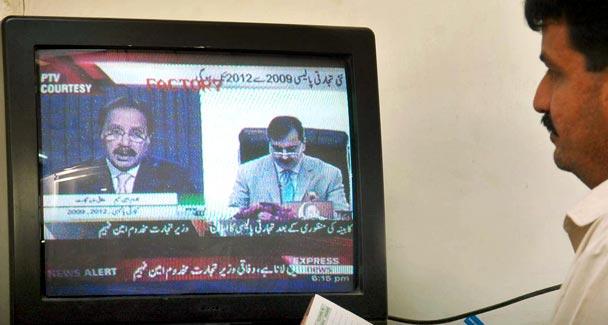
KARACHI: Non-textile sectors such as leather and leather garments, engineering goods, seafood, furniture, cutlery, etc., on Monday welcomed the three-year Trade Policy 2009-10, which focuses on export diversification and set realistic export growth target.
It is for the first time that the trade policy, which was announced by Federal Commerce Minister Makhdoom Amin Fahim, has focussed on non-textile sectors only because a separate policy for the textile sector will be announced shortly.
The new trade policy has projected a six per cent growth in exports during the current fiscal year at $18.8 billion. For FY11 and FY12, the exports are seen to grow at 10 and 13 per cent, respectively.
Business leaders said in view of prevailing global economic recession owing to financial meltdown, the six per cent export growth target was realistic and achievable.
They said that it was encouraging that the new policy had focused on those non-textile sectors which had massive export potential, but were not getting due attention from the economic planners in the past.
The trade and industry were of the view that the three-year trade policy would allow exporters to chalk out business plan on long term basis. In the past, half of the fiscal year was wasted in assessing implications of trade measures and the other half to count benefits, if any.
Pakistan Leather Garments Exporters and Manufacturers Association (Plgmea) Chairman Fawad Ijaz Khan told Dawn that it was quite encouraging that out of seven demands of the association four had been accepted in the new trade policy.
He further said that the Strategic Trade Policy Framework was an attempt to improve the country’s export competitiveness and also overcome global economic shocks.
As leather apparel industry constantly faces challenges in changing trends and improvement in quality, the government will give matching grant to establish design studios or centres in their units. Beside, hiring of foreign experts would also be facilitated by the government.
The Plgmea chief said such measures would help the sector to overcome some of its basic difficulties and also save them from cost particularly on establishing research and development centres in Karachi and Sialkot.
He appreciated setting up of Export Investment Support Fund to be used for providing facilities to leather and leather garment sector.
The best step, he said, making available of funds to local governments for installing flaying machines in slaughter houses because presently around 25 per cent of hides and skins are rendered useless from butcher cuts. SITE Association of Industry (SAI) Chairman M. A. Jabbar welcomed the creation of a special fund of Rs2.5 billion for light engineering sector for product development and marketing.
He also appreciated a move to compensate exporters of cement, light engineering, leather garments, furniture, soda ash, sanitary wares etc., through a support on inland freight.
Faisal Hassan of Global Seafood Marketing said that it was highly encouraging that the new trade policy had given due importance to live seafood, which fetches higher price in the world market. The grant of freight subsidy up to 25 per cent, he said, would help boost exports.
He also commended the measures taken for boosting export of Halal products.
He said bearing of certification cost up to 50 per cent and of safety standards certification by underwriter laboratories would help promote Halal products, which have so far been neglected by Pakistani exporters.
Korangi Association of Trade and Industry (KATI) chairman Zahaid Hussain said exports of non-traditional goods would boost up on getting interim relief.
‘Those sectors, which had been neglected by the economic managers in the past, are now given due importance in the new trade policy such as light engineering, pharmaceuticals, jewellery, handicrafts, auto parts, electric fans, cutlery, sports and footwear goods etc.,’ he remarked





